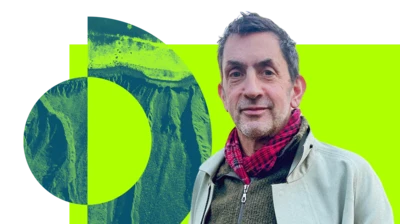We've updated our Privacy and Cookies Policy
We've made some important changes to our Privacy and Cookies Policy and we want you to know what this means for you and your data.
Newspaper headlines: 'Carnage' as '122mph storm batters Britain'
- Author, ΒιΆΉΤΌΕΔ News
- Role, Staff
Image source, PA Media
Most of the front pages choose the image of London's O2 Arena - with part of its fabric roof shredded - to illustrate the damage caused by Storm Eunice.
"Blown Apart" is the headline , which says more than 1,000 people had to be evacuated from the entertainment venue as huge pieces of its canopy came loose with an "almighty bang".
Pictures of crushed cars, fallen power station chimneys and huge waves fill the inside of .
It says the storm left a "terrifying trail of destruction". It puts the potential repair bill at Β£500m.
But government officials that things could have been worse - and they are relieved Eunice did not cause significant coastal flooding.
The Environment Agency still has a small number of flood warnings in place, and is urging people to stay away from the coast.
Several papers consider whether climate change means ferocious storms like Eunice will become more common in future.
they might, as global warming increases the amount of rainfall that storms contain and raises sea levels.
One expert, Dr Friederike Otto from Imperial College London, believes violent storms will be a much more regular occurrence in the second half of this century as climate change increases winter wind speeds.
to call for a formal review of whether the UK is prepared for regular extreme weather events, but says the priority now should be to help communities rebuild.
Image source, PA Media
an interview with the head of MI5, Ken McCallum, who claims the UK and other Western nations are in a "struggle" with "hostile states" like Russia and that threatens our way of life.
He suggests that his organisation is now routinely having to decide whether to prioritise home-grown terrorists or foreign spies, such is the threat posed by Russian and Chinese agents.
Mr McCallum also warns that the crisis in Ukraine could "unleash a wave of cyber-attacks" from Moscow, targeting UK organisations such as the NHS.
The new minister for Brexit opportunities, Jacob Rees-Mogg, he wants to cut around 65,000 civil service roles in the next few years to bring Whitehall back to the size it was before the pandemic.
He says he will personally review all new vacant posts to see if they can be closed, and wants to re-evaluate the government's network of arm's length "quangos" to make sure taxpayers are getting value for money.
And most of the papers mention Jerry Dyer, who became an online smash yesterday as he broadcast hours of live, unfiltered footage of planes trying to land in strong crosswinds at Heathrow Airport.
at one point, 200,000 people were watching Big Jet TV as Mr Dyer "screeched with delight" any time a pilot pulled off a challenging landing.
also enjoyed his "hilarious" commentary, peppered with phrases such as "easy, easy" and "bosh!" - while some of his new fans have suggested holding future screenings in pubs.
- GRAVITY DEFYING TRICKS: James Woods introduces possibly the greatest skier you've never heard of
- BOOST YOUR BRAIN: Find out how to banish brain fog with these free and simple steps
Top Stories
More to explore
Most read
Content is not available








